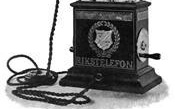Today, the Undergraduate Council launches a new service for students called the “teaching hotline.” Conceived as a supplement to end-of-the-semester CUE evaluations, this program will hopefully enable students to improve their classes as soon as pedagogical problems arise. While we are confident, especially in light of the recent report issued by the Task Force on Teaching and Career Development, that Harvard’s students, teaching fellows (TFs), and faculty members all share the goal of improving teaching, this service will undoubtedly catch disapproving eyes. We hope, however, that through the thoughtful contributions of undergraduates and the cooperation of willing TFs and professors, this program will become an indisputably beneficial tool in Harvard’s classrooms.
The teaching hotline works through an email address—TF@hcs.harvard.edu—to which undergraduates will send both compliments and complaints about their TFs. On the receiving end, a group of undergraduates will move to address student comments. To ensure responsible action, we have partnered with the Bok Center for Teaching and Learning to train these undergraduates in reading evaluations and encouraging the betterment of both teaching and learning in Harvard classrooms. Most often, student intermediaries will present TFs and, when necessary, course heads with comments coming through the hotline, empowering students, TFs, and faculty to invoke change in real time.
This program looks to resolve some of the key difficulties confronting teaching at Harvard. In general, students simply do not feel comfortable speaking directly with their professors and TFs about classroom frustrations. No party benefits from this lack of communication. Students remain dissatisfied throughout the semester, while at its close, they impart scathing CUE reviews to both TFs and course heads who are often unaware of their flaws. But neither a student’s fear of insulting an educator nor their mere discomfort in approaching a brilliant professor should halt the improvement of teaching and learning at Harvard. The teaching hotline removes these obstacles to the goal of consistent progress throughout the semester.
But as detractors will quickly identify, this service does not directly address the more fundamental issues that must be resolved to improve teaching at Harvard. What does it mean when we need undergraduates mediating between other undergraduates and their teachers? Undoubtedly, it speaks to the pervasive sensitivity on campus regarding even constructive criticism of teaching. More importantly though, it identifies a certain disconnect between students and faculty.
It is our belief that the teaching hotline, rather than perpetuating sensitivity and distance, will institute a process of cultural change at Harvard. For too long, we have considered evaluation an event. This includes the semi-annual CUE evaluations but also extends to the intelligence reports submitted by committees and task forces on structural improvements that Harvard should implement. While these large undertakings are incredibly valuable, they largely aim at invoking change beyond the immediate future. It is time that we supplement the community event of evaluation with a regular community practice capable of addressing concerns and flaws at once. By making evaluation commonplace, the teaching hotline will temper sensitivity to constructive criticism and encourage the profusion of a new discourse between students and faculty.
Ultimately, the teaching hotline is a tool of empowerment. First, it empowers students to participate without fear of retribution in the process of improving teaching, and it does so in real time. Furthermore, it empowers teaching fellows to get ready-to-hand information during the semester regarding the strengths and weaknesses of their teaching. Never again should a TF be surprised by his or her CUE scores at the end of the semester, because evaluation will be an on-going practice. With the growing importance of teaching portfolios for TFs, the ability to avoid recording low scores will be of great pragmatic value in the competitive world of academia. This is only in addition to the enormous personal value in improving one’s teaching, among the primary goals of most Harvard graduate students. Finally, the teaching hotline empowers faculty members by providing previously unavailable information about sections within their courses, enabling greater control of the quality of each course with greater facility than ever before.
But, as always, with empowerment comes responsibility. The mere existence of the teaching hotline will not bring the above benefits to fruition. Students will have the responsibility to thoughtfully and consistently make use of the new hotline. Likewise, both TFs and professors will have to vigorously employ the new knowledge provided by this resource to improve teaching in their classrooms. Like so many of the positive changes astir in the College today, the task of improving teaching requires a partnership between students and educators. We hope the teaching hotline acts as a first step in strengthening that partnership.
Jared J. Pearlman ’08 is a history concentrator in Quincy House and a member of the Committee on Pedagogy. Ryan A. Petersen ’08 is a history concentrator in Quincy House and president of the Undergraduate Council. Matthew L. Sundquist ’09 is a philosophy concentrator in Mather House and vice president of the Undergraduate Council.
Read more in Opinion
Harvard Band Willingly Attends Women’s GamesRecommended Articles
-
Fewer Fellows In HistoryThe History Department announced this week that it will cut back its teaching fellow funds next year in order to
-
Professor Anyone?With a series of four sieves, the University pans for its professors. The number of teachers who remain at the
-
Harvard Buildings:A CROSS KIRKLAND Street from the Science Center is the Lawrence Lowell Lecutre Hall, an empty, old, red-brick building with
-
Please, Sir, I Want Some MoreWe are glad to see that the Harvard College Curricular Review’s recent report recognizes the many problems with undergraduate instruction
-
15 Faculty Hot Shots: David MalanStanding casually in the hallway of Maxwell Dworkin’s third floor, bespectacled and wearing a basic brown sweater, David J. Malan
-
 FlyBy Got Harvard's Number!
FlyBy Got Harvard's Number!













